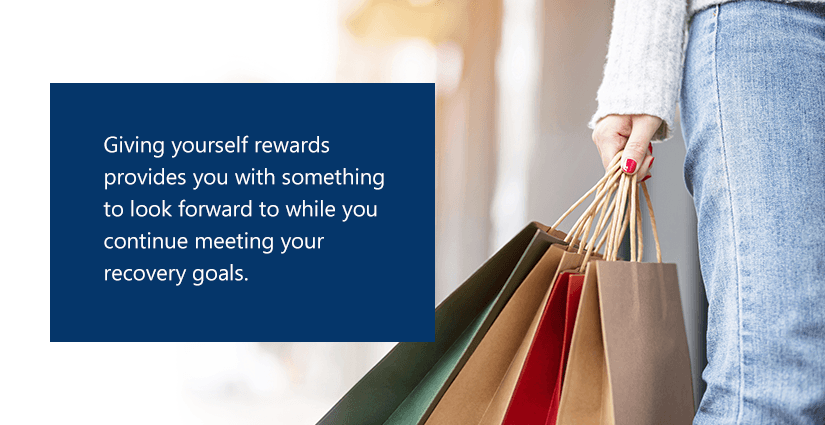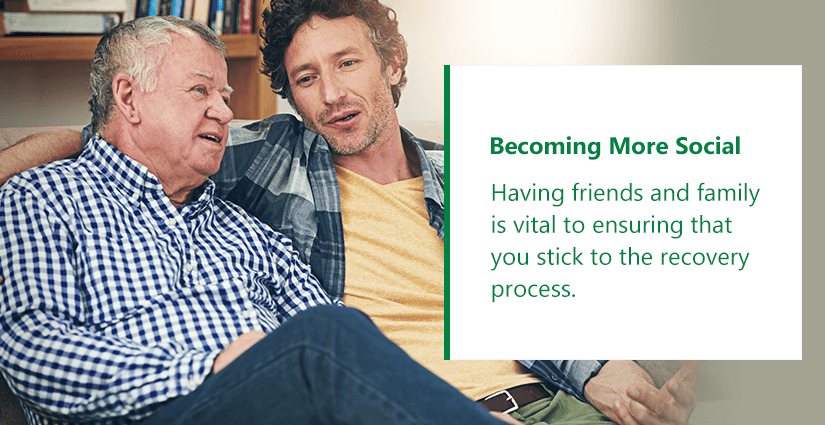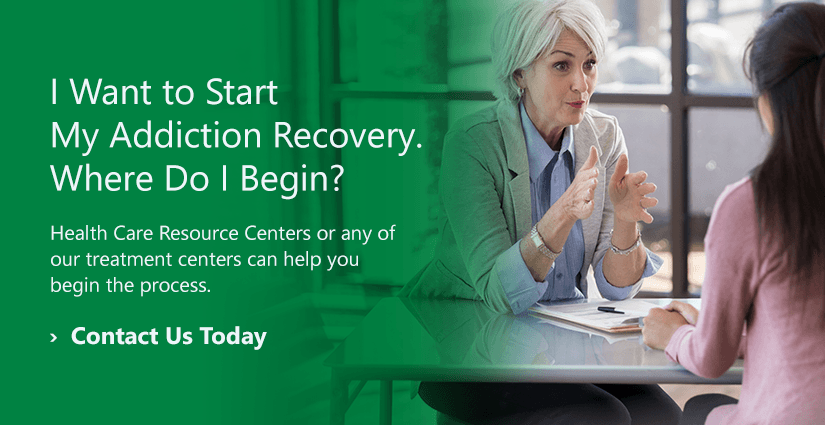At the dawning of a new year, you might be one of the millions of people with an annual tradition of making resolutions. However, with opioid addiction and new year goals, you should consider recovery as a primary aim for the 12 months ahead. By getting support from your friends and family and mental and physical assistance from an accredited program, you can work toward overcoming your addiction.
What Are Some Addiction Recovery Goals?
When you begin working toward recovery, create goals along the way to mark your progress and celebrate how far you have come. Here are some ways to commemorate recovery goals.
1. Focus on Smaller Objectives
First, don’t concentrate solely on recovery to the point of ignoring the small steps that comprise the healing journey. Changes you make in your life, such as admitting you need help and entering an opioid recovery program, can significantly impact your well-being.
For example, people who have never gone through a substance misuse treatment program before might want to direct their attention to attending counseling sessions, group meetings or medication-assisted treatment. As you progress through the early stages of recovery, you will begin to feel physically better as the drug leaves your body. However, you may want to make a goal to avoid the temptation that often occurs at this time to “test the recovery” by returning to drug use. Abstaining during this crucial stage is critical to ensuring long-term recovery.
2. SMART Goals
When outlining your goals, make them SMART. SMART stands for the five attributes of goals that make them more attainable.
- Specific: Goals should have a clear-cut way to measure them. For example, it’s too vague to say, “This year, I’ll stop using drugs.” A better, more defined goal is to not use opioids for two weeks.
- Measurable: Measurable goals have data you can track to see how close you are to reaching the goal. People who want to quit drug use may use the metric of days without using drugs or their track record of attending scheduled recovery program tasks.
- Achievable: Achievable goals are things you can realistically accomplish. For example, abruptly quitting opioid use for the rest of your life may not be feasible where you are now. But, you may successfully free your mind and body from the effects of drugs with short-term medication and counseling support, during which you can work toward long-lasting recovery.
- Relevant: Ensure your goals relate to what you want to do with your recovery and your life.
- Time-bound: Give yourself a deadline for achieving your goals. For example, if you want to make addiction recovery your New Year’s resolution, your timeline might be the rest of this year until Jan. 1, 2022.
3. Making Revelations on Psychological Causes of Addiction
Another goal you can make deals with addiction’s mental side. You may want to create an objective to find reasons to work toward recovery. Or, reward yourself if you have a sudden insight into the root cause of your substance misuse.
4. Reward Yourself for Self-Improvement With Sober Celebrations
As challenging as recovery may sometimes feel, find chances to pat yourself on the back for deciding to go through the process. Reward yourself for meeting small and large goals with sober celebrations. For example, after a month of sobriety, buy yourself new clothes or a video game that’s been on your wish list. If you meet a SMART goal you’ve been working toward for weeks or months, give yourself a more desirable reward, such as treating yourself to a weekend trip without drugs or alcohol or spending time with a significant other.
Giving yourself rewards provides you with something to look forward to while you continue meeting your recovery goals.
What Are Some Non-Addiction Goals?
While working through recovery, you can also have non-addiction goals. These focus on your physical and mental health and can play significant roles in your recovery. If you build a career and relationships as you recover, you will have more to lose if you relapse. One study identified having crucial things at stake is a factor in long-lasting recovery.
1. Improving Your Quality of Life
Find ways to promote your quality of life. If drug addiction has made it challenging to keep up with personal hygiene, set a goal of recommitting to daily showers, brushing your teeth, eating a balanced diet and getting regular exercise. These tasks can help you look and feel better as you advance through the recovery process. Make sure to track your progress in how well you stick to your goal. Over time, you may find that you can care for yourself without setting specific milestones for doing so.
2. Becoming More Social
Having friends and family is vital to ensuring that you stick to the recovery process. However, if you have friends who used drugs with you, they might not support or understand the “new you.” One of your goals might be to distance yourself from them and forge new relationships with people who will encourage you to engage in healthy behaviors and support you through recovery.
3. Engaging in Employment
If you don’t already have a job, aim to find one as part of your recovery process. However, if you already work, recommit yourself to working harder and paying more attention to your career ambitions. By becoming a better, more committed employee, you might earn a raise. Having a job is crucial because it puts more on the line if you return to drug use.
Is Starting a Recovery Program a Good New Year’s Resolution for Addicts?
Resolutions you make for New Year’s and addiction recovery are a perfect match. Because most goals focus on improving yourself and recovery programs center on helping you break free from addiction, you can aim for sobriety as your New Year’s resolution.
Even if you don’t set your intentions until further along in the year, it’s never too late to focus on overcoming substance abuse and improving your quality of life.
I Want to Start My Addiction Recovery. Where Do I Begin?
If you have a substance use disorder, the first step toward improving your physical, mental and emotional well-being is accepting support. Health Care Resource Centers or any of our treatment centers can help you begin the process. At our facilities, we offer counseling services to ease the mental struggle, and methadone and buprenorphine to assist with the physical symptoms of recovering from opioid abuse. By partnering with our physicians and other recovery professionals, you can create a tailored recovery plan to match your needs and lifestyle.
Find your nearest treatment center to call or contact us online at HCRC to learn more about how to start recovering from opioid addiction.







